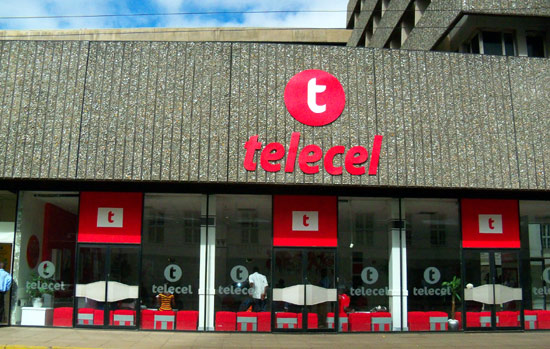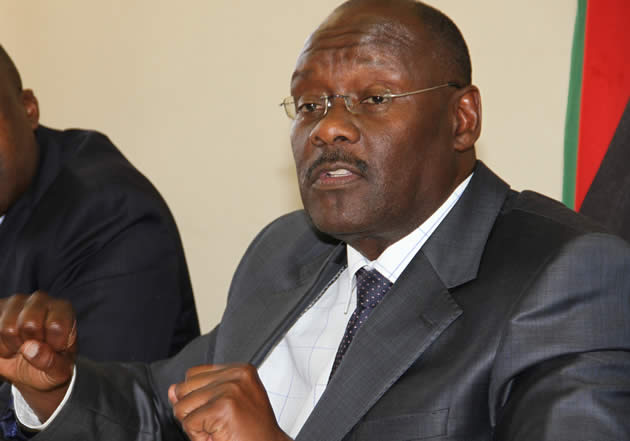Telecel Zim externalises dispute

 Farirai Machivenyika Senior Reporter
Farirai Machivenyika Senior Reporter
Telecel Zimbabwe has embarked on a campaign to internationalise its dispute with the Government after its operating licence was cancelled last week for violating the country’s investment laws.In a letter to Finance and Economic Development Minister Patrick Chinamasa on April 29 — through Telecel Zimbabwe Ltd’s lawyers Gibson, Dunn and Crutcher LLP — the firm threatened to take the matter before the International Centre for Settlement of Investment Disputes if it is not resolved amicably within six months.
The letter was copied to President Mugabe, Youth Development, Indigenisation and Empowerment Minister Christopher Mushohwe; Information Communication Technology, Postal and Courier Services Minister Supa Mandiwanzira and Postal and Telecommunications Regulatory Authority of Zimbabwe acting director general Mr Baxton Sirewu.
However, under the Postal and Telecommunications Act, the company can appeal to the minister within 30 days of the cancellation of the licence and can also approach domestic courts if not satisfied with the outcome of that appeal.
And the company’s decision to approach external courts has been read as an attempt to subvert the local justice system.
Telecel Zimbabwe Ltd has, since 2002, been in breach of the Postal and Telecommunications Act that requires all companies in the telecommunications sector to be majority owned by indigenous Zimbabweans.
Currently, the company is majority owned (60 percent) by Telecel International while its local partner Empowerment Corporation holds a 40 percent stake.
Telecel International is owned 100 percent by Global Telecom, which is majority owned by VimpelCom.
VimpelCom is headquartered in the Netherlands.
On Monday Minister Mandiwanzira chronicled how Telecel Zimbabwe Ltd had since 2002 been given time to rectify its shareholding structure so that it complies with local laws but had failed to do so.
He said this resulted in the initial cancellation of its operating licence in 2007 and was only restored after it promised to address the issue by the time it renewed its licence in 2013.
However, the company has since 2013 failed to rectify the shareholding anomaly resulting in the latest cancellation of the contract.
In its letter on April 29, Telecel Zimbabwe Ltd accused the Government of breaching protections guaranteed under bilateral agreements.
“We hereby give you notice of an investment dispute between TZL and the Republic of Zimbabwe. The dispute arises out of certain measures taken by Zimbabwe in breach of the protections provided to the investor under; the agreement between the Swiss Confederation and Zimbabwe concerning the Reciprocal Promotion and Protection of Investments signed on 15 August 1996, which entered into force on 9 February 2001 (the Swiss Treaty) and the agreement on encouragement and reciprocal protection of investments between Zimbabwe and the Kingdom of the Netherlands signed on 11 December 1996 which entered into force on 1 May 1998 (the Dutch Treaty),” reads part of the letter.
The company argued that the Government had “undertaken a campaign of unfair measures,” in relation to its investments that had adversely affected the said investments and had affected its ability to divest commercial in whole or in part to third parties.
“The Government and Potraz have deliberately ignored good faith compliance with local indigenisation laws, the history of TZL and all attempts to divest TZL, in order to unlawfully expropriate the investment through the improper cancellation of the licence without the provision of prompt, adequate and effective compensation and to force a “sale” to expropriate the company,” reads the letter.
This, the company said, constituted a breach of Zimbabwe’s obligations under the Swiss and Dutch Treaties.
Telecel Zimbabwe Ltd also said provisions of the two treaties provided dispute resolution mechanisms that the Government had ignored.
“Article 10 of the Swiss Treaty and Article 9 of the Dutch Treaty each provide that any dispute between a contracting party to the Treaty and an investor from the other contracting party, relating to investments under the Treaty, should, if possible, be resolved by amicable negotiation. In the event that the dispute is not settled within six months from the time one party notifies the other of its existence, the notifying party may submit the dispute to international arbitration before the International Centre for Settlement of Investment Disputes,” the letter further reads.
The company added that it had immediately notified the Government of Zimbabwe of the commencement of the six month period to resolve amicably the issue as required under the two treaties, failure of which they would seek without notice, international arbitration.
Meanwhile, Minister Mandiwanzira yesterday met VimpelCom directors to discuss the Telecel issue.
Writing on his Twitter page he said: “Just finished meeting with VimpelCom. It would appear the future of TZ (Telecel Zimbabwe) is orange, it’s bright.”
He declined to provide details of the meeting when contacted yesterday.
Mr Antony Kudryashov, Global Telecoms chairman and its managing director Mr Vincenzo Nesci, were among the directors who attended the meeting.










Comments